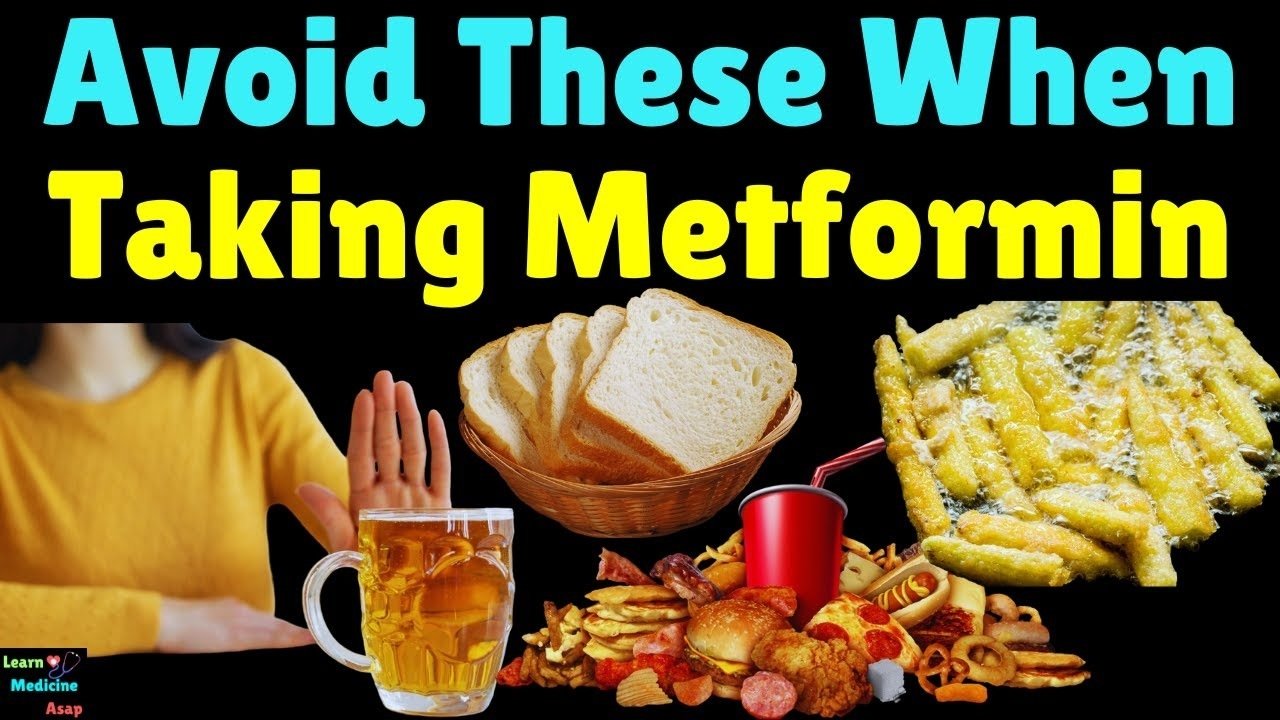Metformin is one of the most commonly prescribed medications for managing type 2 diabetes. While it is highly effective at controlling blood sugar levels, the food choices you make while on this medication can significantly influence how well it works—and how you feel. Being aware of the foods to avoid while taking metformin can help reduce side effects like gastrointestinal discomfort and support better overall health outcomes.
Why Diet Matters When Taking Metformin
Metformin works primarily by lowering glucose production in the liver and increasing insulin sensitivity. However, because it’s processed through the digestive system, your diet can have a major impact on how it’s absorbed and tolerated. The wrong food choices may not only make the medication less effective but can also increase the risk of side effects such as nausea, bloating, and diarrhea.
Here’s a breakdown of foods you should avoid or limit while on metformin—and why they matter.
1. High-Sugar Foods
Refined sugars and simple carbohydrates, such as white bread, sugary cereals, candies, and soda, can cause rapid spikes in blood glucose. This counteracts the purpose of metformin and puts additional strain on your pancreas and liver.
Better Option: Choose whole grains, fruits with a low glycemic index, and natural sweeteners like stevia in moderation.
2. Alcohol
Alcohol, especially in large amounts, can amplify metformin’s side effects and increase the risk of a rare but serious condition called lactic acidosis. This is a medical emergency that can occur when lactic acid builds up in the bloodstream faster than it can be removed.
Tip: If you do choose to drink, keep it moderate (1 drink per day for women, 2 for men), and never consume alcohol on an empty stomach or immediately after taking metformin.
3. High-Fat Processed Foods
Fast food, fried items, and heavily processed snacks can interfere with glucose metabolism and slow digestion. They may also contribute to weight gain, which undermines the goals of using metformin in the first place.
Healthier Alternative: Opt for lean proteins, baked or grilled foods, and meals rich in vegetables and legumes.
4. Excessive Fiber
While fiber is generally beneficial, too much insoluble fiber—like that found in raw vegetables, bran, and whole wheat—can delay the absorption of metformin, potentially reducing its effectiveness.
Balance It Out: Stick to the recommended daily fiber intake (about 25-30 grams) and incorporate soluble fiber sources like oats, chia seeds, and apples.
5. Grapefruit and Grapefruit Juice
Grapefruit can affect enzymes that break down certain medications, potentially increasing their levels in the blood and leading to adverse effects. While not as problematic for metformin as for other drugs, it’s still best to consume grapefruit in moderation or consult your healthcare provider.
Natural Alternatives and the Concept of “Metformina Natural”
As more people explore natural health solutions, there’s growing interest in "Metformina natural"—a term used to describe plant-based or lifestyle strategies that mimic metformin’s effects. These include natural supplements like berberine, dietary adjustments, and regular exercise. While not replacements for prescription medication, such strategies can complement treatment under medical guidance. You can learn more about natural approaches and their effectiveness here: Metformina natural.
Final Words
Taking metformin doesn’t mean you have to overhaul your entire diet, but being mindful of what you eat can make a significant difference. Avoiding high-sugar, high-fat, and alcohol-heavy meals, while focusing on balanced nutrition, will help you get the most out of your medication and avoid uncomfortable side effects.
Your diet is one of the most powerful tools you have in managing diabetes. Pairing metformin with smart food choices ensures a stronger, more sustainable path to health and longevity.
 Online Clock
Online Clock